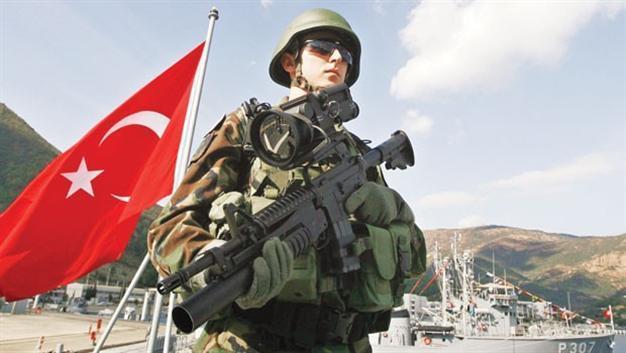
Turkey and Saudi Arabia will hold joint military drills as part of a decision to strategically cooperate against common threats, sources have told daily Hürriyet. However, the state-run Anadolu Agency quoted military sources as denying such a planning.
Turkish Chief of General Staff Hulusi Akar’s visit to Saudi Arabia in late January, which had coincided with Turkish Prime Minister Ahmet Davutoğlu’s official visit to the country, brought about a decision to hold joint military exercises with the participation of the two countries’ armies, military sources told Hürriyet.
Sources speaking on condition of anonymity said a decision for “the strategic cooperation against common threats” had been made during the meeting in Riyadh.
Still, military sources said the Feb. 10 media reports, which said such a joint drill would be held, did not reflect the truth, Anadolu Agency said later on Feb. 10. The agency quoted the sources as also denying that the Turkish military would attend a Saudi-led exercise, admitting that a deal was made for joint military training.
The visit was not to discuss the coalition against the Islamic State of Iraq and the Levant’s (ISIL) facilities in Syria but rather conducted to strengthen mutual ties between the two states and armies, according to the sources speaking to Hürriyet.
The “Islam army,” which Saudi Arabia had announced to be formed on Dec. 15, 2015, consisting of 34 Sunni Islam states, to fight terrorism amid a continuing war on jihadists in the Middle East and elsewhere, was not on the agenda of the meetings in Riyadh.
The visit coming right before Saudi Arabia and the United Arab Emirates declaring they were ready to send troops and special forces to Syria under the U.S.-led anti-ISIL coalition was also a coincidence, the sources said, adding Turkey was distancing itself from both of the issues.
“The togetherness that is being mentioned [by Saudi Arabia] cannot actually be called an ‘Islam army.’ Even if there is such an initiative, Turkey will not be a part of its military branch,” said a senior Turkish official.
The Turkish General Staff has two important considerations regarding the international community over sending troops to Syria.
The first of these two is that the United States has not made any preparations for ground troops to be deployed to Syria, as it knows a United Nations decision cannot be met due to Russia’s stance in the civil war in Syria.
Russia and Iran, which support Syrian President Bashar al-Assad and forces loyal to him, are at odds over Syria with the U.S.-led anti-ISIL coalition of more than 60 countries. While Russia wants al-Assad to remain in power, the U.S.-led coalition wants a transition period in the country, after which al-Assad would leave.
The U.S. and other Western countries also accuse Russia of carrying out airstrikes against civilians in Syria and opposition forces under the name of striking ISIL.
The second was that the Turkish army would not set foot on Syrian soil without a U.N. Security Council resolution.
Commenting on Akar’s visit to Riyadh, another Turkish official said a “High-level Strategic Cooperation Council” would be established soon between the two countries. Talks were ongoing on the civilian base, while they were also seeking ways to enhance the bilateral relations on the military aspect too, the official said.
The source said Akar’s visit should be regarded as a return visit, as the Saudi Arabian chief of staff had previously visited Turkey.
“The common aim here is for the two countries’ militaries to put forth a joint stance in responding to regional problems,” said the official, adding that Turkey tried to abstain from being seen as a part of the rift between Saudi Arabia and Iran.